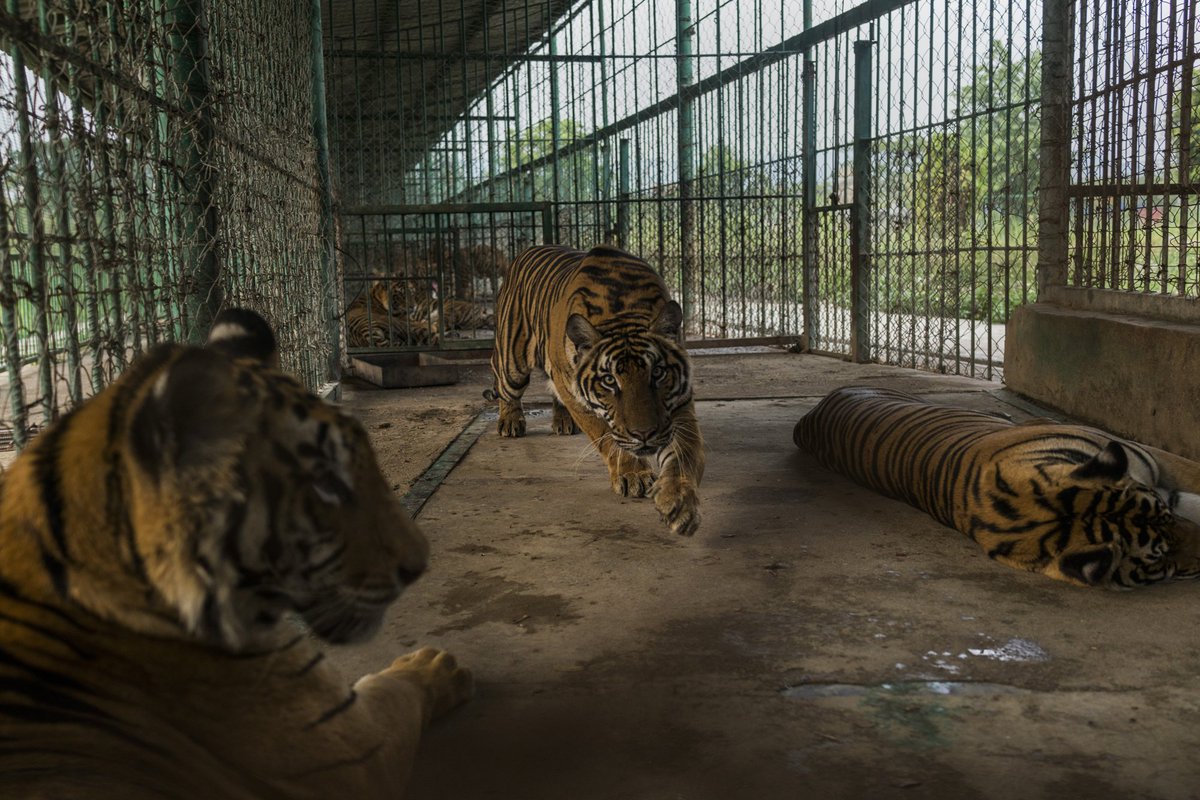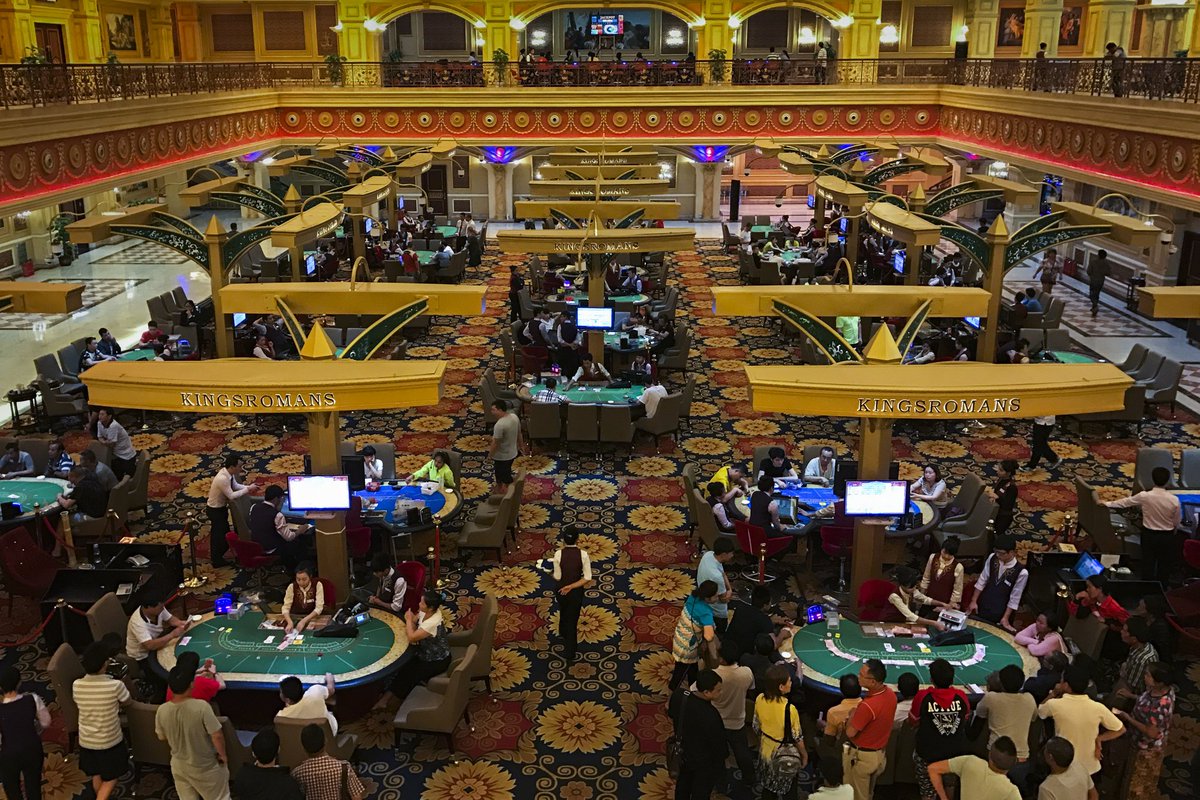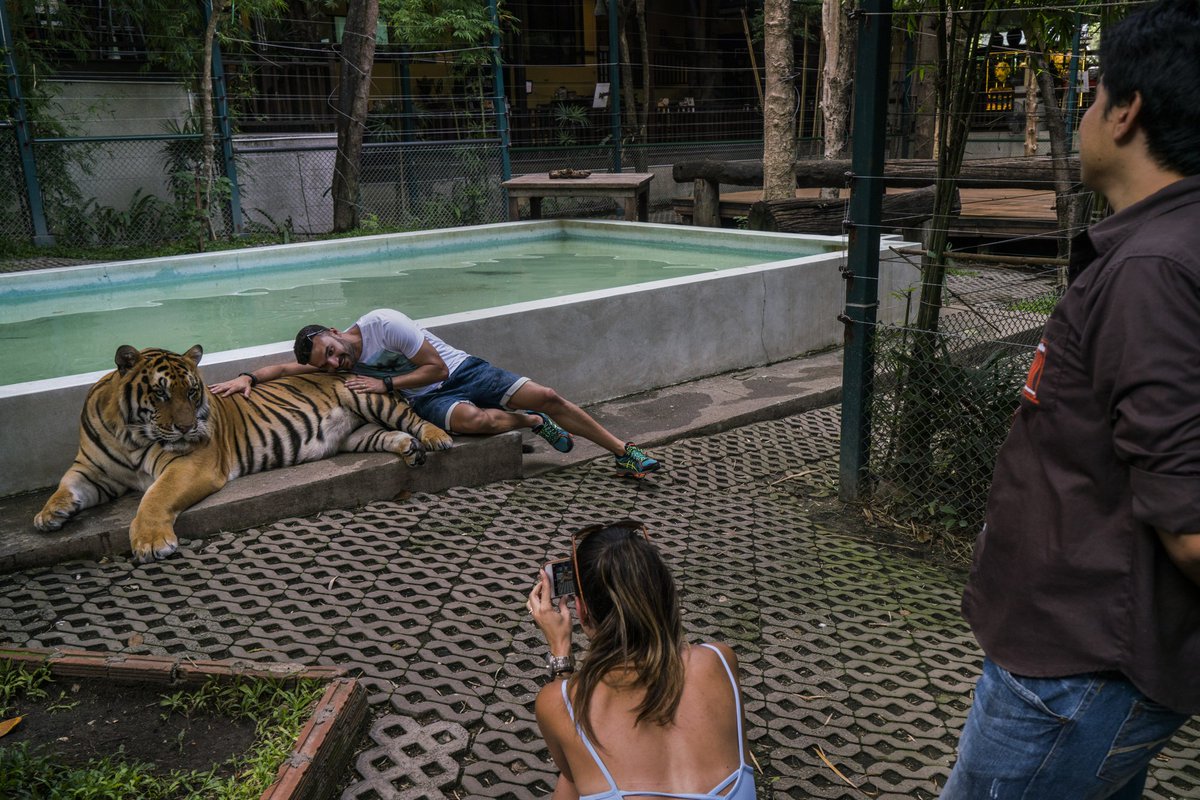Illegal Asian Wildlife Trade on the Menu
"Legal trade stimulates demand, confuses law enforcement efforts, and opens a huge opportunity for laundering illegal products, which is why ivory markets are now being closed globally."
Scott Roberton, director, Wildlife Conservation Society, Asia program
"When fingers are pointed at China about their tiger farms, they tend to point the finger back at the U.S. and say, 'They have as many tigers as we have, why are you not criticizing them'?"
Leigh Henry, senior policy adviser, World Wildlife Fund
 |
| At the Kings Romans complex in Laos, tigers roam cages. Photograph Adam Dean, The New York Times |
On the other hand, there is yet another dimension to the keeping of these large cats in confinement, away from their natural habitat, and that is for the purpose of entertainment yes, but also as culinary stars in the East, where jaded tastes require a pick-me-up such a placing rare animal meat on the menu. As unlikely as it may seem, there are those people living in the East whose 'refined' tastes include a yen for tiger meat on their plates.
In Laos, a casino operated and owned by Hong-Kong-based Kings Romans Group comes complete with hotels, a cockfighting and bullfighting ring, a shooting range, shopping center and a zoo. This leisure entertainment complex is located in an area named the Golden Triangle Special Economic Zone. As for the zoo, it is claimed by conservationists that it is in fact a holding centre, a farm where animals are raised for slaughter.
Throughout Southeast Asia such farms are commonplace, where big cats of noble lineage are kept, illegally butchered for a profitable industry comparable in illegality, harmfulness and profitability to the global drug and arms trades, alongside that of human trafficking. All of which speak volumes for the sensibilities and morality invested by nature in human beings.
At Kings Romans, restaurants feature plates of bear paw, pangolin (on the endangered list) and sauteed tiger meat. Tiger wine is also available for the discerning food-and-wine aficionado. "The place is just a mess. Pretty much anything goes", commented Debbie Banks, with the Environmental Investigation Agency in London, who in 2015 with the group Education for Nature-Vietnam issued a report.
 |
| Kings Roman Group casino, Golden Triangle Special Economic Zone. Photographs by Adam Dean for The New York Times |
From that report the world could have learned that meals, medicine and jewellery produced from tigers, leopards, rhinoceroses, bears and elephants -- all protected species -- were being sold openly in the economic zone, spurring the Laotian government to stir itself to raid a few businesses. Little, however, changed beyond that "cosmetic effort", reports Ms. Banks.
In Laos, an estimated 700 tigers are held on farms, with thousands more believed kept throughout Southeast Asia. There are over 200 breeding centers in China where an additional 5,000 to 6,000 tigers are kept. Contrast that with the fact that fewer then four thousand tigers remain in their wild natural setting. It has been rumoured from trusted sources that some Laotian politicians are involved in the farms.
All Southeast Asian nations signed on to the Convention on the International Trade in Endangered Species (CITES), in effect agreeing that tigers can be bred, but only for conservation purposes. Conservationists have a stock of evidence that zoos and farms serve as fronts for commercial big cat breeding in Laos and other Asian countries.
Two tiger farms in China are supported by government investment. In China there are government officials who feel that such facilities should be legal, on the basis that their presence relieves pressure mounted to hunt wild animals for their body parts and organs. An investigation that took place in 2008 revealed that half of 78 wildlife farms surveyed launder animals caught in the wild.
That investigation by Vietnamese officials in tandem with the Wildlife Conservation Society, was augmented by a later 2016 study of 26 Vietnamese wildlife farms which found that each and every one took part in laundering; presenting animals as being farmed when in fact they were caught in the wild.
 |
| A tourist at Thailand's Tiger World, Photograph by Adam Dean for The New York Times |
Labels: Animal Exploitation, Asia, Endangered Species

0 Comments:
Post a Comment
<< Home